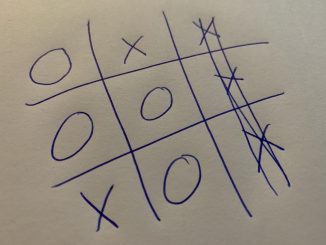In my work as a Relationship Counsellor, I have met and worked with hundreds of couples.
When you’ve seen this many couples, in situations ranging from mild irritations to significant conflict, you get to see some patterns.
One of the patterns that really stands out to me in relationship counselling revolves around our Schemas, particularly the combination of two schemas within an individual.
What is a Schema?
A schema is an automatic thought or behaviour that exists within us and was formed in our childhood (sometimes by nature, sometimes by nurture).
For example, if you had a parent pull away from you at an early age, or if a parent was inconsistent in their affection, you may be carrying the Abandonment Schema.
The abandonment schema could/would potentially come to the fore if you were to feel that your partner/spouse was pulling away from you.
When triggered, the abandonment schema could see you become quite desperate, clingy, or emotional as you try to prevent the perceived or real abandonment.
Of course, this is kind of like how you might have reacted when you were in a similar situation as a child.
The abandonment schema in itself is an interesting phenomenon, but what we’re here to talk about this time (in general terms of course) are two other schemas that seem to often arise mutually, and go hand in hand.
I’m talking about Self-Sacrifice Schema and Unrelenting Standards Schema.
As individual schemas, they can be troublesome, but in combination, these schemas can be very detrimental to relationships, and it’s a situation I see in a very high percentage of my clients.
Here are the official definitions of these schemas:
Self-Sacrifice
Excessive focus on voluntarily meeting the needs of others in daily situations, at the expense of one’s own gratification. The most common reasons are: to prevent causing pain to others; to avoid guilt from feeling selfish; or to maintain the connection with others perceived as needy. Often results from an acute sensitivity to the pain of others. Sometimes leads to a sense that one’s own needs are not being adequately met and to resentment of those who are taken care of.
Unrelenting Standards
Involves the underlying belief that one must strive to meet very high internalised standards of behaviour and performance, usually to avoid criticism. Typically results in feelings of pressure or difficulty slowing down, and in hypercriticalness towards oneself and others. Must involve significant impairment in pleasure, relaxation, health, self-esteem, sense of accomplishment, or satisfying relationships. Unrelenting standards typically present as (a) perfectionism, inordinate attention to detail, or an underestimate of how good one’s own performance is relative to the norm; (b) rigid rules and “shoulds” in many areas of life, including unrealistically high moral, ethical, cultural, or religious precepts; or (c) preoccupation with time and efficiency so that more can be accomplished.
So, when combined, how can they prove so damaging?
Well, let’s stop and think about it. We meet someone and invariably at some point in the early stages of the relationship we work out that there are some areas where compromise is going to be needed if we want this relationship to work.
The person with the self-sacrifice schema might think to themselves that they really like the other person, have feelings for them, are attracted to them etc, and tell themselves they will be OK with shelving some of their needs/wants for the greater good.
Then, life happens.
It turns out that while we thought we were OK to push those needs and wants down, what’s been happening under the surface is that resentment has slowly been building.
We start to realize that we’re giving a little (or maybe a lot more) than we’re getting back.
Then, with the resentment and hurt bubbling away under the surface, unrelenting standards steps in and your partner fails to act in a way that you deem acceptable.
The schema takes over, the emotion comes out and all the resentment comes to the surface.
Now, that’s an interesting cycle in itself, but what schema(s) might your partner have? How has this affected them? What buttons have been pushed?
Maybe, you’ve hit their abandonment schema…they become triggered, emotional, defensive, or desperate?
Or, what if maybe they actually carry the same schemas you do? (not uncommon given the commonality in traits I find in relationship counselling clients – check out this article for more on that).
Is your schema-fed behavioural response triggering their own unrelenting standards and resentment?
Your schemas are not your fault. You didn’t choose to have them. Further to that, if you weren’t aware of them, how could you not just be at their mercy?
I can’t help but think that if we’re not aware of our own schemas, or our partners, we really are flying blind in a relationship and life.
If any of this resonates with you, I would be happy to discuss this further with you, or you can make an appointment to come and see me here.



